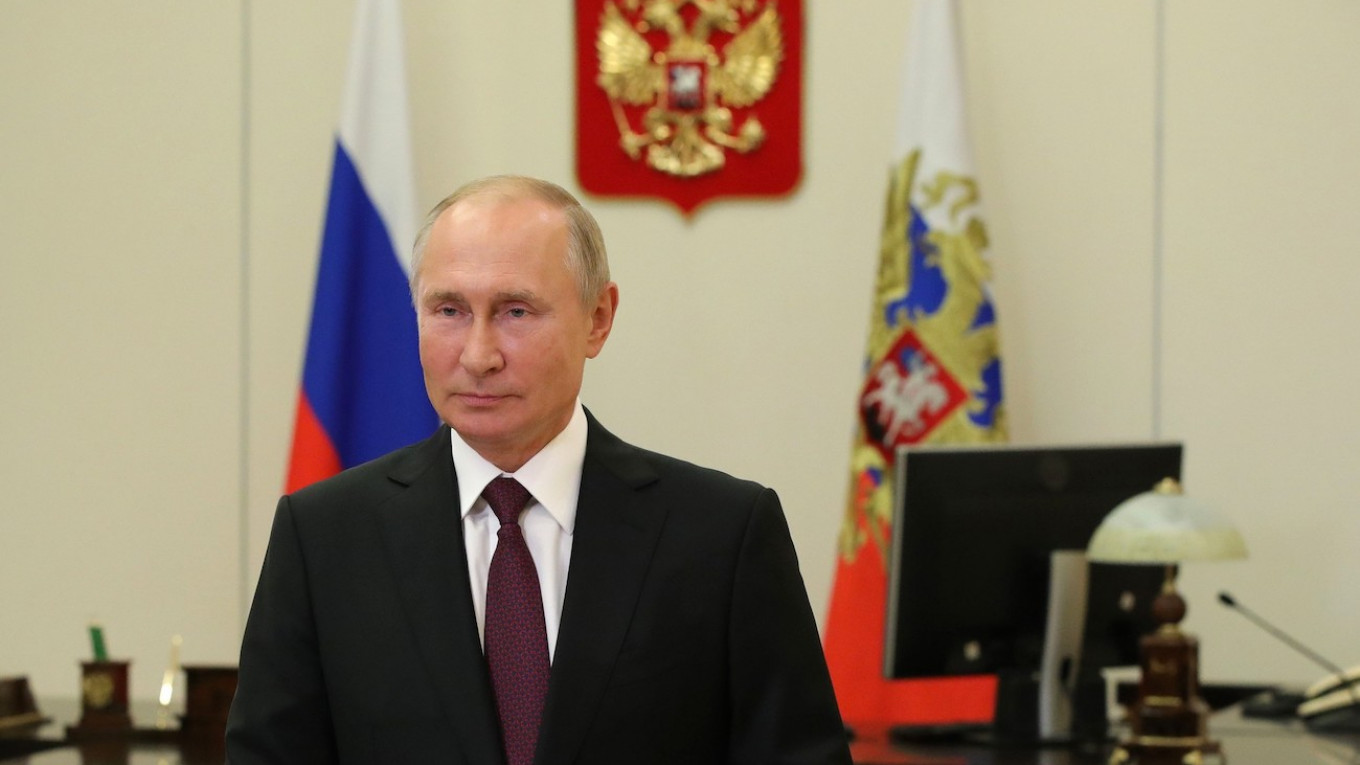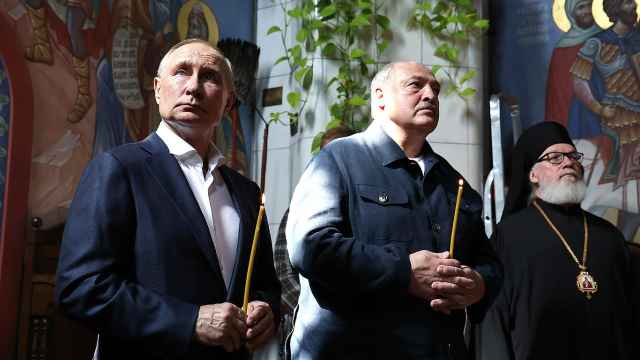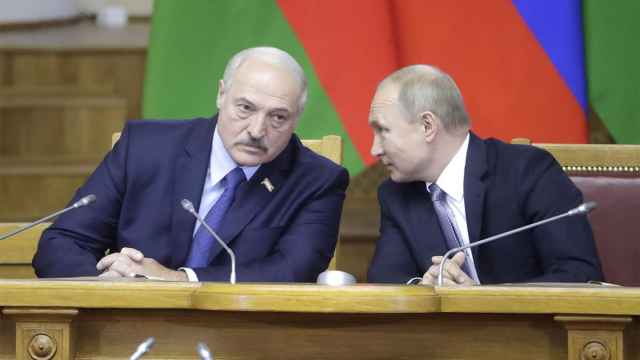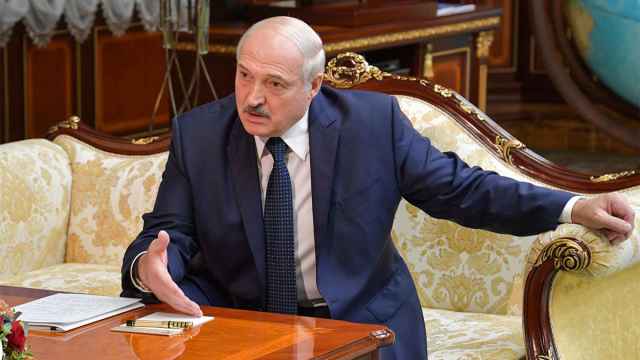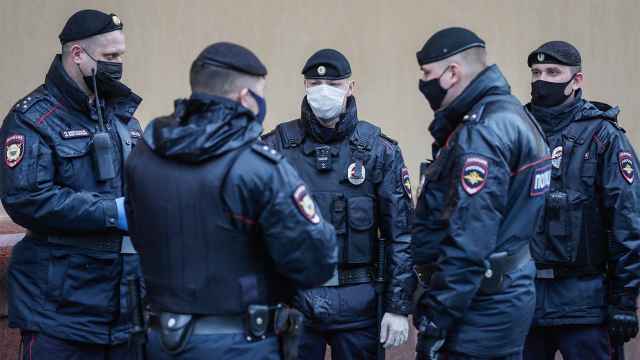Russian President Vladimir Putin said Tuesday that neighboring Belarus was under unprecedented external pressure, as the Kremlin's ex-Soviet ally faces a deep political crisis over a disputed election.
Belarus is in a "difficult situation" and facing "unprecedented external pressure," Putin said in televised remarks, after a presidential vote last month sparked ongoing protests against authoritarian leader Alexander Lukashenko.
Protesters have taken to the streets of Belarusian cities since Lukashenko claimed a sixth term with 80% of the vote in the Aug. 9 election.
Putin has promised to provide the 66-year-old strongman with security assistance if the political crisis worsens and gave Belarus a loan of $1.5 billion.
Lukashenko has accused various Western countries and NATO of attempting to destabilize his country or support the protest movement.
Addressing a forum on the Belarusian and Russian regions, the Kremlin chief said that Moscow was ready to stand by Minsk, describing ties as "timeless and all-weather."
Lukashenko's relationship with Putin was strained ahead of the vote last month with Minsk accusing Russia of dispatching mercenaries to plot unrest with the opposition.
Putin has long been pushing for even closer integration between the two countries, whose "union state" alliance guarantees close military and economic ties.
European leaders have refused to recognize Lukashenko's relection and have promised sanctions on Belarus for vote rigging and a fierce crackdown on post-election protests.
Exiled opposition leader Svetlana Tikhanovskaya who claimed victory over Lukashenko in the August vote has rallied Western support for demonstrators since fleeing to neighboring Lithuania.
A Message from The Moscow Times:
Dear readers,
We are facing unprecedented challenges. Russia's Prosecutor General's Office has designated The Moscow Times as an "undesirable" organization, criminalizing our work and putting our staff at risk of prosecution. This follows our earlier unjust labeling as a "foreign agent."
These actions are direct attempts to silence independent journalism in Russia. The authorities claim our work "discredits the decisions of the Russian leadership." We see things differently: we strive to provide accurate, unbiased reporting on Russia.
We, the journalists of The Moscow Times, refuse to be silenced. But to continue our work, we need your help.
Your support, no matter how small, makes a world of difference. If you can, please support us monthly starting from just $2. It's quick to set up, and every contribution makes a significant impact.
By supporting The Moscow Times, you're defending open, independent journalism in the face of repression. Thank you for standing with us.
Remind me later.


